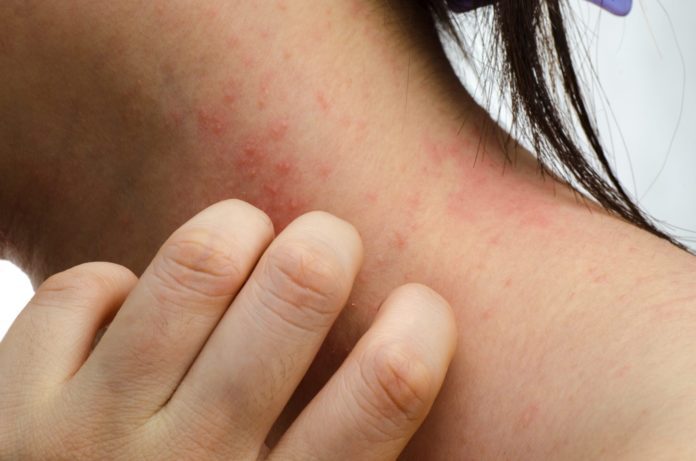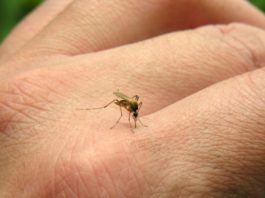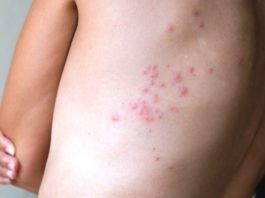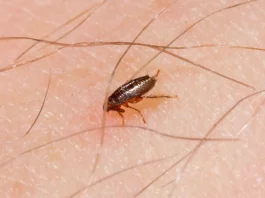Sand flea bites are very itchy red pimple-like blisters and can spread if you keep on itching. But how long do sand flea bites last? These might lessen in two days but if you are allergic to it, it might take two weeks for complete healing leading to other complications like vomiting, nausea, swelling of the tongue, etc.
Creams or gel for the pain, ice packs for itching, tea tree oil, etc. can give some relief. Mow your lawn regularly, check and clean your pets often, give them a hot water bath, vacuum, and clean your surroundings to avoid sand fleas.
Sand flea bites are some of the worst to deal with. They form painful, red, pimple-like blisters that take a long time to heal completely. Another setback with them is that they itch a lot and also tend to spread if you give in to the temptation of itching. There is little you can do about preventing sand flea bites, except completely avoid beaches, and that does not seem like the easy thing to do.
So let’s find out how long they last and then we will see some ways to deal with them.
How Long Do Sand Flea Bites Last on Humans?
Usually, sand flea bites would subside in a day or two. However, if you develop a reaction to the sand flea bite, it might even take up to 2 weeks for the entire rash to subside.
There is also the probability that sand flea bites might develop secondary infections, which will prolong the rash even further.
Can Sand Flea Bites Spread?
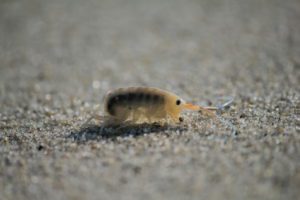
In most cases, sand flea bites develop into a rash. This is red in color and forms pimple-like bumps on or around the affected area. This rash can then spread to other areas of the body.
Itching and swelling are two other common symptoms that are observed with sand flea bites.
Repeated sand flea bites might also lead to scarring that can later become persistent.
Can a Person Be Allergic to Sand Flea Bites?
Yes, certain people can be allergic to the saliva of sand flea bites. This is because those people are hypersensitive to some proteins present in the saliva of sand fleas.
Here are some of the symptoms you might experience if are allergic to sand flea bites:
- Swelling of the tongue
- Nausea
- Vomiting
- Hyperventilation
- Development of blisters where sand flea bites have appeared.
It is always suggested to visit a doctor if you suspect you might be developing an allergic reaction to sand flea bites. Allergies may become life-threatening if left untreated for a long period of time.
Can Sand Flea Bites Become Severe?
As is the case with a number of insects, if you end up scratching a sand flea bite for a long time, it might lead to a secondary infection. It is hence best to avoid scratching them for as long as possible.
How to Treat Sand Flea Bites?
Here are a few options you can try out to treat sand flea bites:
- Over-the-counter medications, like creams, gels, etc to deal with the pain and inflammation of a sand flea bite.
- Ice packs to reduce the itching
- Aloe Vera gel
- A mixture of baking soda and water, in equal parts, to apply to the affected area.
- Tea tree oil
How to Prevent Sand Flea Bites?
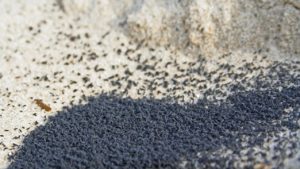
Ways of preventing sand flea bites:
It is no secret that flea bites are better prevented than treated. Here is a list of a few steps you can take to make sure that these pests are kept at bay:
- Do a thorough inspection of your pets, especially if they have been outdoors and interacted with other animals.
- If you have a lawn in front of your home, mow the grass regularly. About once in two weeks seems a good time frame. Inspect the grass closely for fleas and other pests too.
- Wash your pet’s linen at least once a week. Make sure you wash all the linen that is being used, like pillowcases, throws, blankets, etc. Use hot water to do all the washing as this will ensure all the pests and their eggs are killed.
- Use a mild anti-flea soap or disinfectant while bathing your pet once a week. There are also anti-flea powders and talcs available in the market.
- Vacuuming and keeping your home and surrounding areas clean is also a great way to ensure your pets are free of fleas.
Our Curated List For :
Closing Thoughts
Sand flea bites are painful and tough to deal with. Though in most cases, they disappear in a short time, they may progress to something more serious. If you are being targeted by sand flea bites repeatedly, consider calling in a reliable pest control company to deal with the solution.
Now that you’re familiar with sand fleas and what to do if you are bitten by one, start planning ahead of time to ensure a bug-free camping experience.

